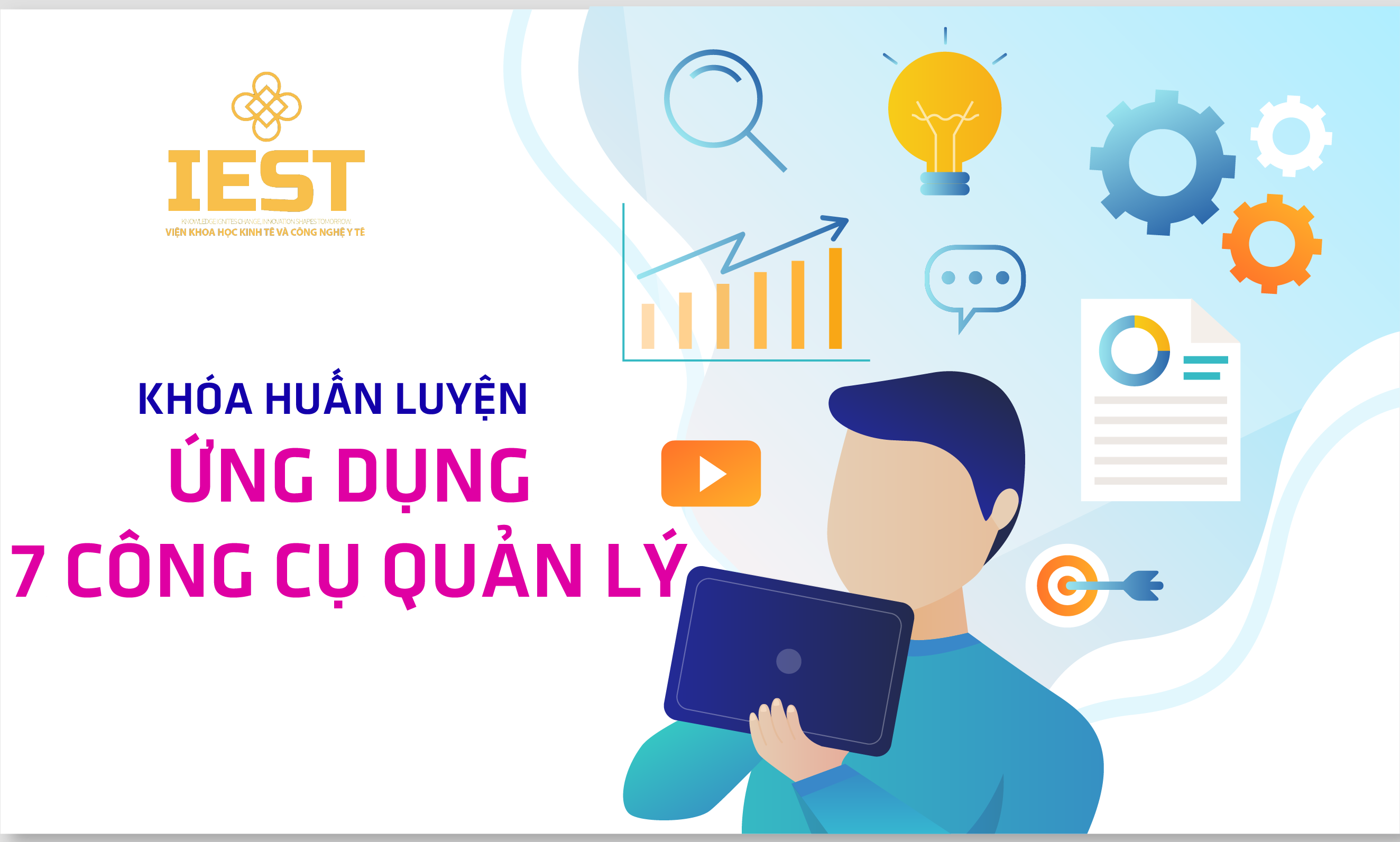APPLICATION 7 MANAGEMENT TOOLS
1. Teaching duration: 04 sessions, each session 3 hours. Combine online and in-person.
2. Object:
- Business management.
- Team leader/deputy leader and related departments.
- The staff involved.
3. Describe:
- The 7 quality management tools, also known as the 7 QC tools, are graphical and statistical tools used to analyze and solve work-related problems effectively. Today, these tools have been widely adopted by many industries to improve products and processes while solving quality problems.
- The 7 quality management tools (7 QC tools) are simple graphical and statistical tools that play a very important role in solving quality problems and improving processes. These statistical tools are easy to understand and can be implemented without any complex analytical skills or competencies. It is commonly used by quality control and quality assurance engineers to resolve product or process quality related issues on a daily/weekly/monthly basis and to reduce and eliminate non-value-added activities such as rework, repair, or product scrapping.
4. Expected learning outcomes: at the end of the course, students are required to grasp basic knowledge and apply it to tools appropriate to the nature of the job. Among them, 7 tools are:
- Check sheets
- Charts (Charts.)
- Cause & Effect Diagram
- Pareto chart
- Histogram
- Scatter Diagram
- Control Chart
5. Evaluation method: students attend at least 75% of the class sessions and have a clear understanding of the lecturer's knowledge.
6. Instructor requirements: must be an experienced and leading lecturer in economic knowledge and production activities.
7. Agenda:
Session 1:
- Introduction to lecturers and programs.
- Check sheets
Session 2:
- Charts (Charts.)
- Cause & Effect Diagram
Session 3:
- Pareto chart
- Histogram
Session 4:
- Scatter Diagram
- Control Chart
- Summary and award of certificates.
